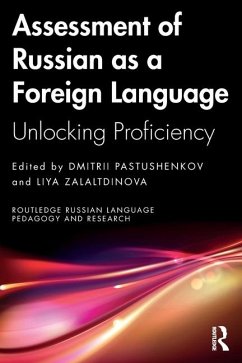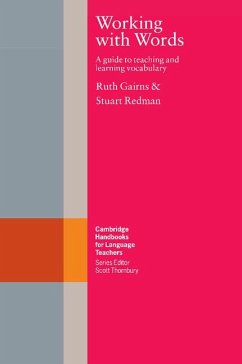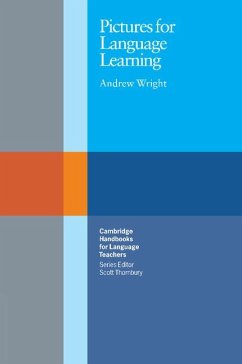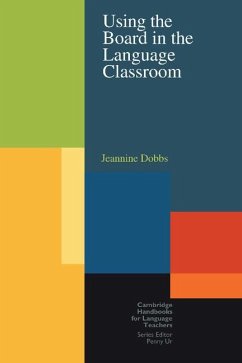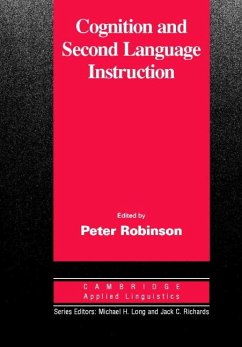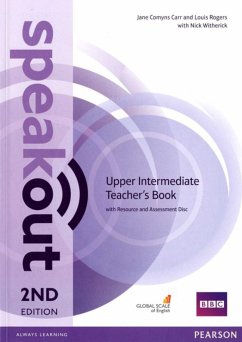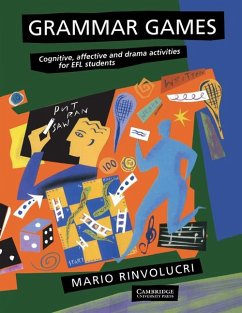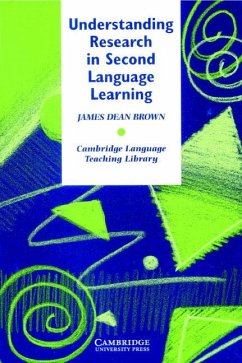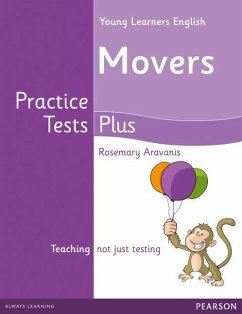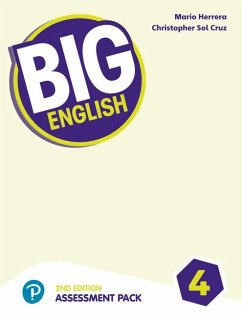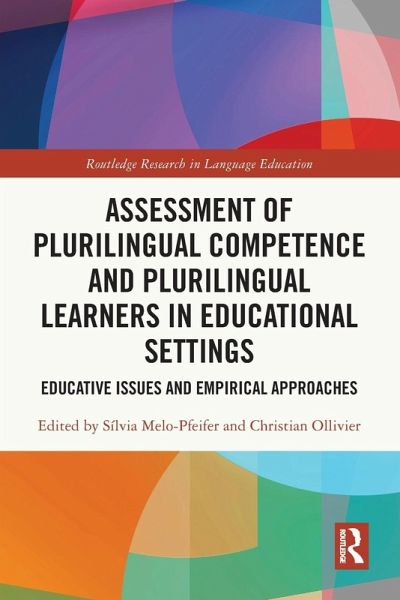
Assessment of Plurilingual Competence and Plurilingual Learners in Educational Settings
Educative Issues and Empirical Approaches
Herausgegeben: Melo-Pfeifer, Silvia; Ollivier, Christian
Versandkostenfrei!
Versandfertig in 6-10 Tagen
42,99 €
inkl. MwSt.
Weitere Ausgaben:

PAYBACK Punkte
21 °P sammeln!
This book addresses contemporary issues in the assessment of plurilingual competence and plurilingual learners. Offering theoretical and practical lenses, it contributes towards an integrated and holistic assessment of plurilingual competence and plurilingual learners.The book provides both theoretical considerations and empirical approaches around how the specificities of plurilingual learners can be considered when assessing their various competences. It covers topics relating to learners in a variety of plurilingual settings: from the education of adult immigrants, assessment of young refug...
This book addresses contemporary issues in the assessment of plurilingual competence and plurilingual learners. Offering theoretical and practical lenses, it contributes towards an integrated and holistic assessment of plurilingual competence and plurilingual learners.
The book provides both theoretical considerations and empirical approaches around how the specificities of plurilingual learners can be considered when assessing their various competences. It covers topics relating to learners in a variety of plurilingual settings: from the education of adult immigrants, assessment of young refugees and assessment of students in school and university, to the assessment of plurilingual competence in foreign language education. Showcasing a wide range of international authors, the book provides cutting-edge research in the domain of multilingual foreign, second and heritage language assessment, and assessment of content knowledge of plurilingual students. It bridges the gap between the fields of language policies and practices, research on plurilingual competence, and assessment in language education.
Providing new insights into a crucial and contentious issue, this volume will be an essential reading for researchers and postgraduate students in the fields of educational language policies, applied linguistics and multilingualism, in particular those involved in the assessment of plurilingual competence.
Chapter 3 of this book is freely available as a downloadable Open Access PDF at http://www.taylorfrancis.com under a Creative Commons Attribution- NonCommercial-ShareAlike (CC-BY-NC-SA) 4.0 license.
The book provides both theoretical considerations and empirical approaches around how the specificities of plurilingual learners can be considered when assessing their various competences. It covers topics relating to learners in a variety of plurilingual settings: from the education of adult immigrants, assessment of young refugees and assessment of students in school and university, to the assessment of plurilingual competence in foreign language education. Showcasing a wide range of international authors, the book provides cutting-edge research in the domain of multilingual foreign, second and heritage language assessment, and assessment of content knowledge of plurilingual students. It bridges the gap between the fields of language policies and practices, research on plurilingual competence, and assessment in language education.
Providing new insights into a crucial and contentious issue, this volume will be an essential reading for researchers and postgraduate students in the fields of educational language policies, applied linguistics and multilingualism, in particular those involved in the assessment of plurilingual competence.
Chapter 3 of this book is freely available as a downloadable Open Access PDF at http://www.taylorfrancis.com under a Creative Commons Attribution- NonCommercial-ShareAlike (CC-BY-NC-SA) 4.0 license.





